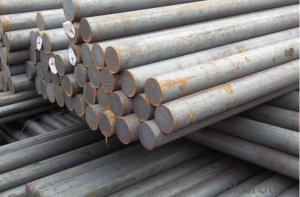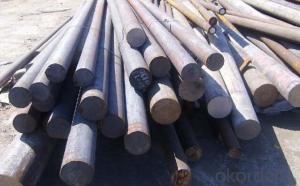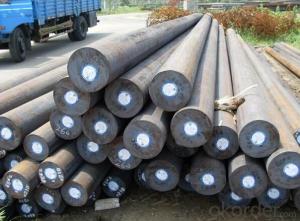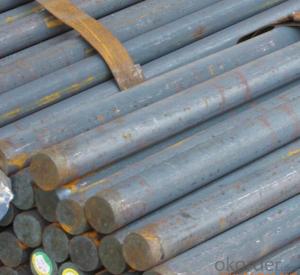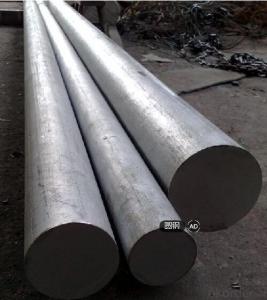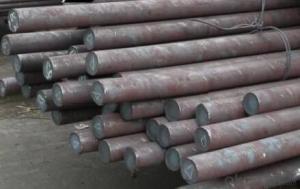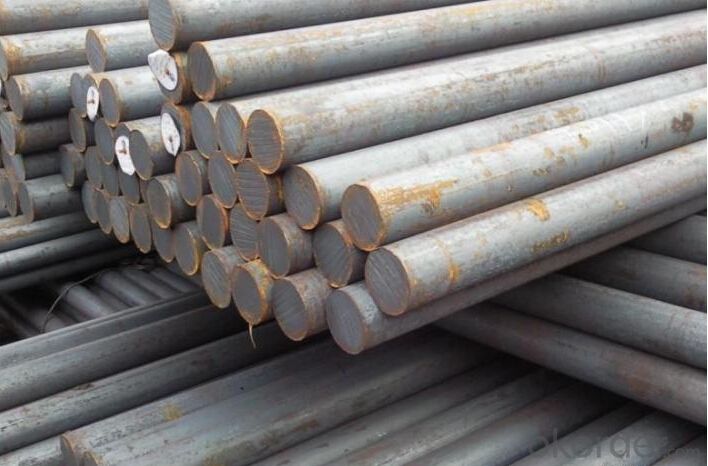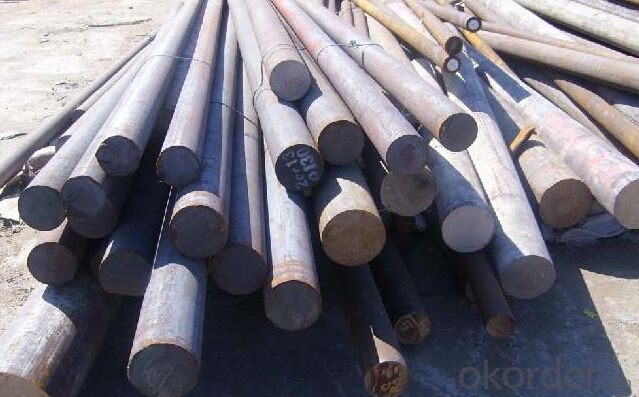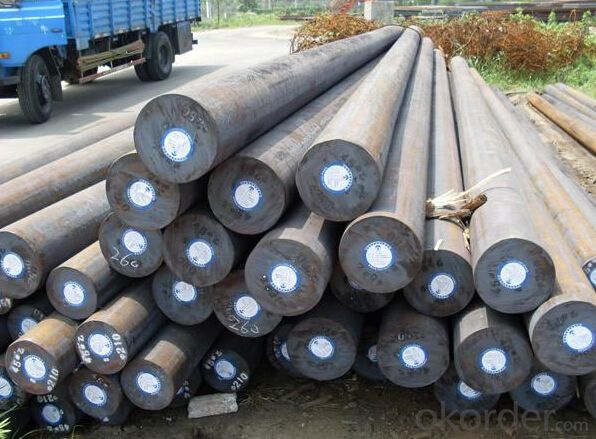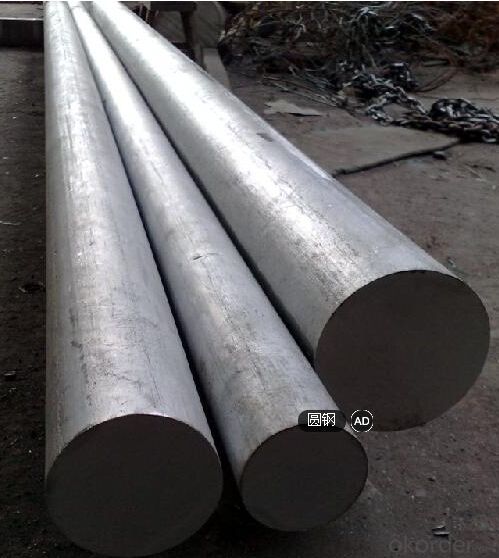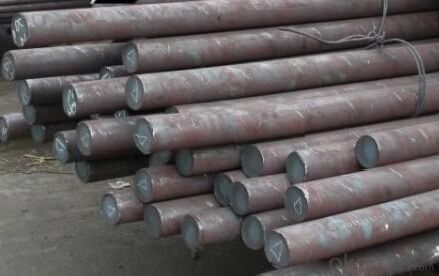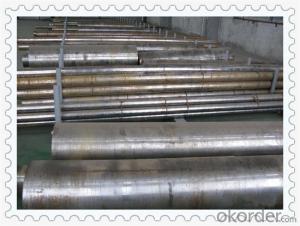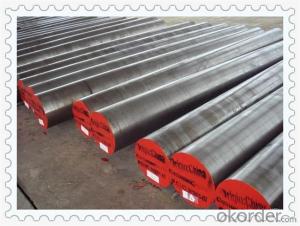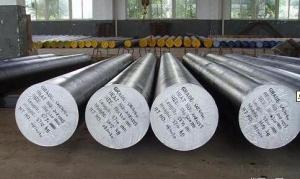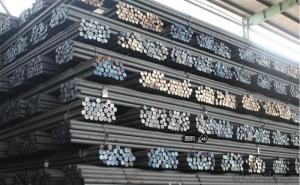Grade AISI 4340 CNBM Forged Steel Round Bar
- Loading Port:
- Tianjin
- Payment Terms:
- TT OR LC
- Min Order Qty:
- 3 m.t.
- Supply Capability:
- 10000 m.t./month
OKorder Service Pledge
OKorder Financial Service
You Might Also Like
Specification
Grade AISI 4340 CNBM Forged Steel Round Bar
Name | SAE4340 Carbon Steel Round Bar |
Shape | Round Bar/Square Bar/Flat Bar/Plate/Wire |
Standard | GB/ASTM/SAE/AISI/DIN/JIS/EN/BS |
Surface Treatment: | Black/Peeling/Polished/Machined |
Delivery Condition: | Hot Rolled or Forged/Peeled or Black Surface |
Test | SGS/UT 100% Elements Testing |
Certificate: | ISO/Mill Certificate |
Service: | 24 hours online service / |
more than 20 years trading and manufacture | |
Quality Assurance: | the third party inspection, such as SGS, BV, TUV…etc. is acceptable |
Packaging Details: | seaworthy packaging or as per customer's packing instruction |
Machine Capability
Tensile strength (N/mm2Mpa): >=980(100)
Elongation: >=12
Yield strength: >=835(85)
Hardness:( HBS 100/3000)<=269
Reduction of area:>=55
Akv(J)>=78 akv(J/cm2):>=98(10)
Chemical Composition (%):
C | Si | Mn | S | P | Cr | Ni | Cu | Mo |
0.37-0.44 | 0.17-0.37 | 0.40-0.80 | 0.025(max) | 0.025(max) | 0.60-0.90 | 1.25-1.65 | 0.025(max) | 0.15-0.25 |
Packaging & Delivery
Packaging Detail | Sea worthy packing /as per customer's packing instruction |
Delivery Detail | 15 ~ 40 days after receiving the deposit |
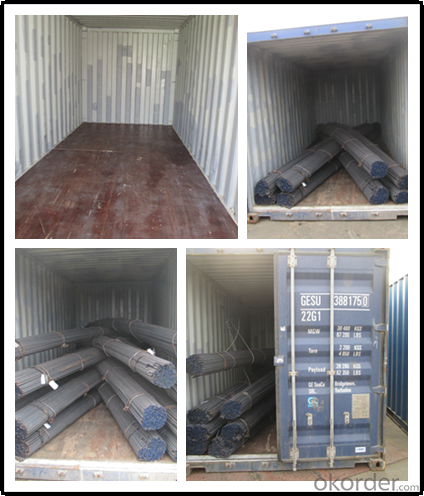
Product Show
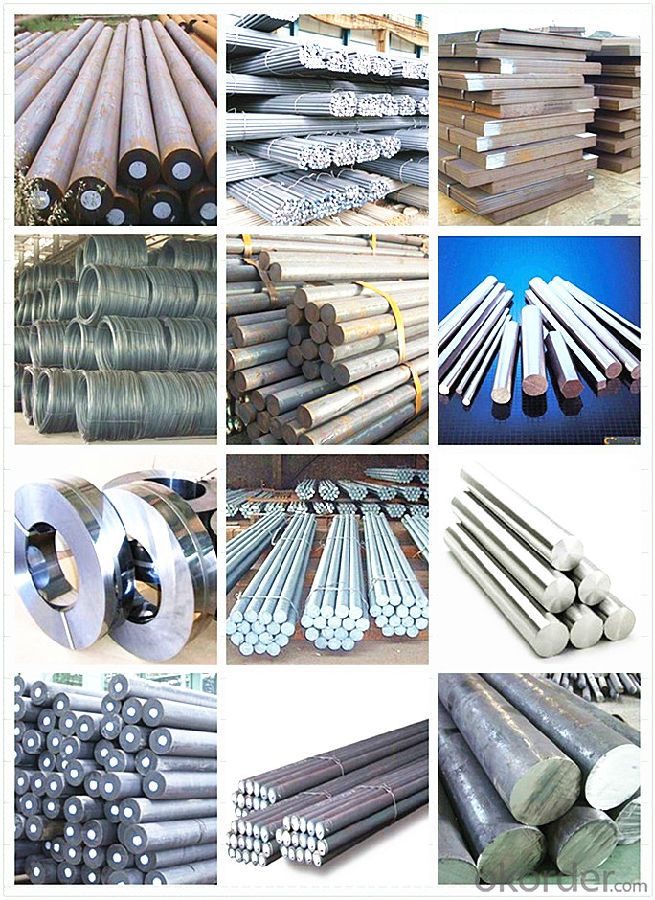
Workshop
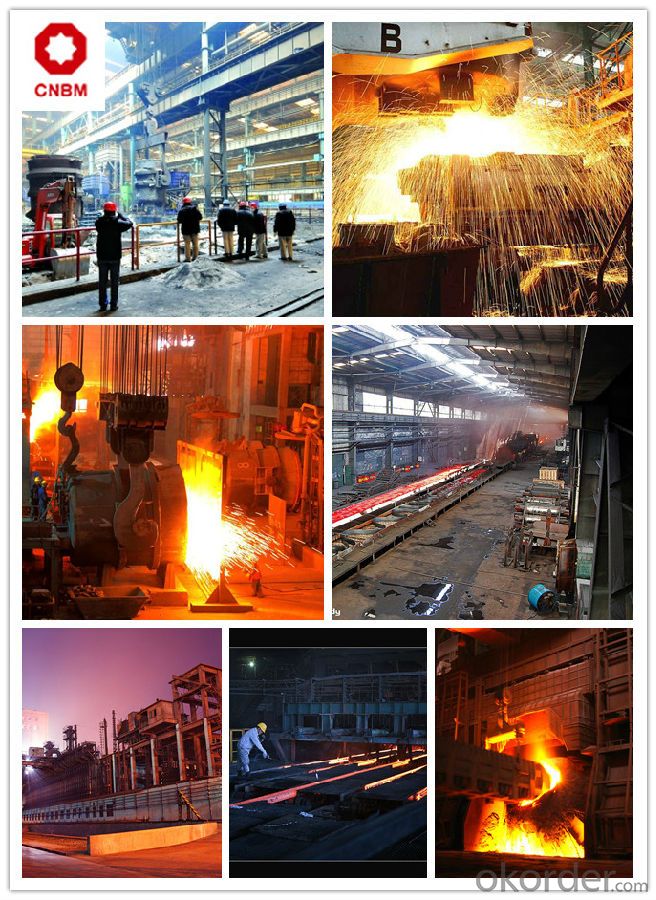
FAQ
Are you a trading company or manufacturer? | Manufacturer |
What’s the MOQ? | 3 metric ton |
What’s your delivery time? | 15-35 days after downpayment received |
Do you Accept OEM service? | Yes |
what’s your delivery terms? | FOB/CFR/CIF |
What's the Payment Terms? | 30% as deposit,70% before shipment by T/T |
Western Union acceptable for small amount. | |
L/C acceptable for large amount. | |
Scrow ,Paybal,Alipay are also ok | |
Why choose us? | Chose happens because of quality, then price, We can give you both. |
Additionally, we can also offer professional products inquiry, products knowledge train (for agents), smooth goods delivery, excellent customer solution proposals. | |
What's your available port of Shipment? | Main Port, China |
What’s your featured services? | Our service formula: good quality+ good price+ good service=customer's trust |
Where are your Market? | Covering more than 160 countries in the world |
- Q: How is special steel used in the production of bearings?
- Special steel is used in the production of bearings due to its unique properties such as high durability, corrosion resistance, and wear resistance. It helps in increasing the lifespan and performance of bearings, allowing them to withstand high loads and rotational speeds. Additionally, the special steel used in bearings undergoes precise heat treatment and surface finishing processes to ensure optimal performance and reduce friction, resulting in smoother operations in various industries such as automotive, aerospace, and manufacturing.
- Q: What are the specific requirements for special steel used in the oil and gas sector?
- The specific requirements for special steel used in the oil and gas sector are primarily focused on its ability to withstand harsh and demanding environments. Some of the key requirements include: 1. Corrosion Resistance: Special steel used in the oil and gas sector must have excellent resistance to corrosion caused by various factors such as moisture, chemicals, and high temperatures. This ensures the longevity and reliability of the equipment in corrosive environments. 2. High Strength: The steel must possess high strength and toughness to withstand the extreme pressure, stress, and load conditions experienced in oil and gas operations. This is crucial for ensuring the structural integrity of equipment like pipelines, offshore platforms, and drilling components. 3. Low Temperature Resistance: Oil and gas operations often involve working in extremely low-temperature conditions, especially in deep-sea exploration or Arctic regions. Special steel used in such applications must have good low-temperature toughness to prevent brittle fracture and maintain its mechanical properties. 4. Weldability: Special steel used in the oil and gas sector should exhibit good weldability to ensure ease of fabrication and construction. This is crucial for joining various components and pipelines together, ensuring structural integrity and minimizing the risk of failure. 5. Resistance to Hydrogen-Induced Cracking (HIC): In the presence of hydrogen sulfide gas, which is common in many oil and gas environments, special steel must have resistance to hydrogen-induced cracking. HIC can lead to catastrophic failures, so the steel must be specifically designed to prevent this phenomenon. 6. Sour Service Resistance: In certain oil and gas fields, the presence of hydrogen sulfide and other corrosive gases necessitates the use of special steel that can withstand sour service conditions. The steel must have high resistance to sulfide stress cracking and exhibit good mechanical properties under these harsh conditions. 7. Compliance with Industry Standards: Special steel used in the oil and gas sector must meet specific industry standards and specifications, such as those set by the American Petroleum Institute (API), to ensure quality, reliability, and safety. Overall, the requirements for special steel used in the oil and gas sector are driven by the need for durability, reliability, and safety in challenging operating environments. These requirements may vary depending on the specific application within the industry, but they are all critical for ensuring the smooth and efficient functioning of oil and gas operations.
- Q: How does special steel perform in cryogenic impact resistance?
- Special steel performs well in cryogenic impact resistance due to its high strength, toughness, and ability to retain these properties at extremely low temperatures. This makes it suitable for applications requiring exceptional resistance to fracture and deformation under cryogenic conditions.
- Q: What are the different methods of joining special steel?
- There are several methods of joining special steel, each with its own advantages and limitations. Some of the most common methods include: 1. Welding: This is the most widely used method of joining steel. It involves melting the base material and adding a filler material to create a strong bond. Different welding techniques such as arc welding, gas welding, and laser welding can be used depending on the specific requirements. 2. Brazing: This method involves heating the steel and melting a filler metal with a lower melting point, which then flows into the joint by capillary action. Brazing is often used when joining dissimilar metals or when a lower-temperature joining process is needed. 3. Soldering: Similar to brazing, soldering also uses a lower melting point filler material to join the steel. However, soldering involves melting the filler material without melting the base material. It is commonly used for electrical connections and delicate applications. 4. Mechanical fastening: This method involves joining the steel components using mechanical means such as bolts, screws, rivets, or other types of fasteners. Mechanical fastening is often preferred in situations where disassembly or maintenance is required. 5. Adhesive bonding: Special steel can also be joined using adhesives that create a strong bond between the surfaces. Adhesive bonding is suitable for joining complex shapes, reducing stress concentrations, and providing excellent corrosion resistance. 6. Friction welding: This technique involves rubbing or spinning two steel components together under pressure to generate heat, which then creates a bond. Friction welding is commonly used for joining high-strength or heat-treated steels. 7. Explosive welding: This method involves using explosives to create a high-speed collision between two steel surfaces, resulting in a solid-state bond. Explosive welding is often used for joining dissimilar metals or when high strength and corrosion resistance are required. The choice of joining method depends on factors such as the type of steel, the desired strength and durability of the joint, the specific application requirements, and the available equipment and expertise.
- Q: What are the different methods of surface anodizing for special steel?
- Surface anodizing for special steel can be achieved through various methods, each with its own advantages and applications. Below are some of the different techniques available: 1. Chromic Acid Anodizing: By immersing the steel in a chromic acid solution, a thin, hard, and corrosion-resistant oxide layer forms on its surface. This method is particularly effective for enhancing durability and aesthetic appeal, as it enables excellent adhesion for paint and other coatings. 2. Sulfuric Acid Anodizing: Widely utilized, this method involves immersing the steel in a sulfuric acid bath and applying a direct current to create an oxide layer on the surface. It offers exceptional corrosion resistance, increased hardness, and improved wear resistance. Additionally, it provides a solid foundation for achieving various colors and finishes by applying dyes or sealing. 3. Phosphoric Acid Anodizing: Primarily used for stainless steel, phosphoric acid anodizing entails immersing the steel in a phosphoric acid solution and applying a direct current. This process generates a protective oxide layer that enhances corrosion resistance and yields a uniform matte finish. Phosphoric acid anodizing is commonly employed in applications where aesthetics are not a priority. 4. Titanium Anodizing: This method involves anodizing steel using titanium electrodes, resulting in a thick oxide layer on the surface. The outcome is improved corrosion resistance, increased hardness, and enhanced wear resistance. Titanium anodizing finds significant usage in industries like aerospace, where robust and durable surface properties are vital. 5. Hard Anodizing: Distinguished by its specialized nature, hard anodizing produces a thick and highly durable oxide layer on the steel surface. It achieves this by employing higher voltage and lower temperature during the anodizing process. Consequently, it enhances hardness, wear resistance, and electrical insulation properties. Hard anodizing is particularly valuable for applications requiring superior abrasion resistance, such as parts exposed to heavy wear or friction. These are merely a few examples of the various methods available for surface anodizing of special steel. The selection of the most suitable technique depends on specific application requirements, desired properties, and the type of steel being treated. It is crucial to consult with industry experts to determine the optimal anodizing method for a particular steel application.
- Q: What are the main characteristics of heat-resistant steel?
- Heat-resistant steel, also known as high-temperature steel, is a type of alloy that possesses specific properties that enable it to withstand extreme temperatures without losing its mechanical strength and integrity. The main characteristics of heat-resistant steel include: 1. High resistance to thermal fatigue: Heat-resistant steel is designed to withstand cyclic heating and cooling without developing cracks or fractures. This property allows it to maintain its structural integrity even in environments with rapid temperature fluctuations. 2. Excellent creep resistance: Creep is the gradual deformation that occurs in a material when it is exposed to high temperatures over an extended period. Heat-resistant steel exhibits exceptional resistance to creep, ensuring that it retains its shape and strength even under prolonged heat exposure. 3. Retention of mechanical properties at elevated temperatures: Unlike regular steel, which can experience a significant reduction in strength and hardness at high temperatures, heat-resistant steel retains its mechanical properties even at extreme temperatures. This characteristic makes it suitable for applications in industries such as aerospace, power generation, and oil and gas. 4. Oxidation and corrosion resistance: Heat-resistant steel is highly resistant to oxidation and corrosion at elevated temperatures. It forms a protective oxide layer on its surface, preventing the underlying material from being attacked by oxygen or other corrosive elements. This property enhances the longevity and reliability of components made from heat-resistant steel. 5. High thermal conductivity: Heat-resistant steel possesses excellent thermal conductivity, allowing it to efficiently transfer heat away from its surface. This feature is particularly beneficial in applications where heat dissipation is critical, such as in heat exchangers and furnace components. 6. Low thermal expansion: Heat-resistant steel has a relatively low coefficient of thermal expansion, meaning it expands and contracts minimally when subjected to temperature changes. This characteristic ensures dimensional stability and reduces the risk of warping or distortion under thermal stress. Overall, the main characteristics of heat-resistant steel make it an ideal material for applications that involve exposure to high temperatures, such as furnace components, exhaust systems, gas turbines, and heat exchangers. Its ability to withstand extreme heat without compromising its structural integrity and mechanical properties make it a crucial material in industries where temperature resistance is paramount.
- Q: Can special steel be used in the pharmaceutical industry?
- Yes, special steel can be used in the pharmaceutical industry. Special steel alloys, such as stainless steel, are commonly utilized in pharmaceutical equipment and manufacturing processes due to their corrosion resistance, high strength, and hygienic properties. These steel alloys are suitable for applications such as pharmaceutical storage tanks, piping systems, mixing vessels, and other critical components required for pharmaceutical production.
- Q: What are the characteristics of tool steel?
- Tool steel is a type of high-carbon steel that possesses exceptional hardness, durability, and resistance to wear and deformation. It is specifically designed to be used in various cutting, shaping, and forming tools. Some common characteristics of tool steel include high strength, excellent heat resistance, good toughness, and the ability to hold a sharp edge even under extreme conditions. Additionally, tool steel often has good machinability and can be easily heat treated to enhance its properties for specific applications.
- Q: What are the common challenges in heat treatment of special steel?
- Some common challenges in the heat treatment of special steel include achieving uniform heating and cooling rates, managing distortion and warping, controlling grain growth, and avoiding the formation of undesirable phases or microstructures. Additionally, maintaining tight temperature tolerances, ensuring proper heat transfer within the material, and minimizing the risk of cracking or other forms of damage are also key challenges in the heat treatment process.
- Q: Can special steel be used in corrosive environments?
- Yes, special steel can be used in corrosive environments. Special steels like stainless steel and corrosion-resistant alloys are specifically designed to withstand corrosion and maintain their structural integrity in harsh and corrosive environments such as marine, chemical, or industrial settings. These steels contain additional alloying elements like chromium, nickel, or molybdenum, which provide enhanced corrosion resistance properties, making them suitable for use in corrosive environments.
Send your message to us
Grade AISI 4340 CNBM Forged Steel Round Bar
- Loading Port:
- Tianjin
- Payment Terms:
- TT OR LC
- Min Order Qty:
- 3 m.t.
- Supply Capability:
- 10000 m.t./month
OKorder Service Pledge
OKorder Financial Service
Similar products
Hot products
Hot Searches
Related keywords
